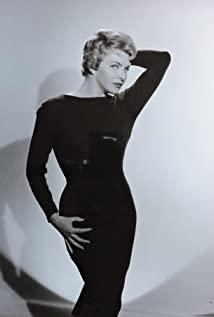Gogol once said: "Comedy is hidden everywhere, and we live in it." For example, prejudice. South and North, developed and backward, elegant and rude: a series of prejudices have given the climate, language and even living habits a hierarchical meaning, exposing this habitual absurdity, and exposing its irrationality in the form of humor. This is the obvious starting point of "Welcome to the North". Differences are everywhere, and if the differences are exaggerated infinitely, the differences become the only reason for terrible, unreasonable, mutual discrimination, life and death. The northern region of France has been "demonized" for a long time, and works of art have clearly contributed to it. The essence of demonization is simplification. The ice and snow, the street full of drunks, the mouthful of nonsense that the civilized people can’t understand, are the original stereotypes of the Philip couple about the north, so that when Philip’s colleagues cooperated with him in acting to blind Julie, the film reappears. Or it is a parody of ordinary people's "terrible illusion" of the north, this scene is undoubtedly a great irony. The exaggeration of comedy can be seen everywhere, but it is not the exaggeration of the actors' performance and the exaggeration of the life scene itself, but the exaggeration of the human concept. Generally speaking, this comedy is very lifelike, although it also uses language ambiguity and association (for example, using dialects "his" and "dog's" to produce jokes), or with the help of misplacement or barriers of psychological expectations ( For example, in the beginning part, Philip played the role of the disabled, and other commonly used comedy tactics, but it feels that the bridges often appear in daily life, lively and not vulgar. Don't know if this is the background color of algorithmic comedy? Kant once said: Laughter is a kind of nervous expectation that suddenly transforms into nothingness. A comedy, of course, makes people relax in college, but after you laugh, you feel bored, relieved or moved. It reflects the difference in comedy character and the attitude of the creator to the world. It seems that the effects of comedy can be roughly divided into three styles: funny, ironic, and humor, all of which can bring laughter. However, laughter is a funny customer, a satirical partner, and a humorous child. Customers can be sought after and fooled (to be funny for the sake of being funny), partners can be replaced (the irony is to the extreme, the effect will become anger and hatred), only children are connected by natural blood. Humor is a kind of ability. It has innate wisdom and tolerance. When it finds unreasonable situations in life, it will respond with a gentle and restrained smile, allowing people to think and improve in laughter. Funny tends to turn into nonsense, satire tends to be acrimonious, and humor also has the risk of slickness-after all, it affirms life more than denies it and criticizes it more than destroys it. This film has a good grasp of the principle of "moderation", so it has more humor than satire and slippery. Ji, it not only exposes prejudice, but also promotes kindness and beauty. The postman is a symbol of "communication" and "connection." Only sincere communication can eliminate prejudice, and only if you muster the courage to tell the truth can you win true love. Therefore, no matter where the flash of humanity lies in the north and south, it is equally precious. It is not without flaws: For example, the North is certainly not that simple, because it has overcorrected and fell into another simplification, which is probably the director's last resort. For another example, the scenes of squares, music, and banners for marriage proposals are too unimaginative-even though the music is the sound of bells. Laughing is not just about being carefree, it also brings reason and sobriety, warmth and hope. This is probably a quality shared by good comedies.
View more about Welcome to the Sticks reviews











